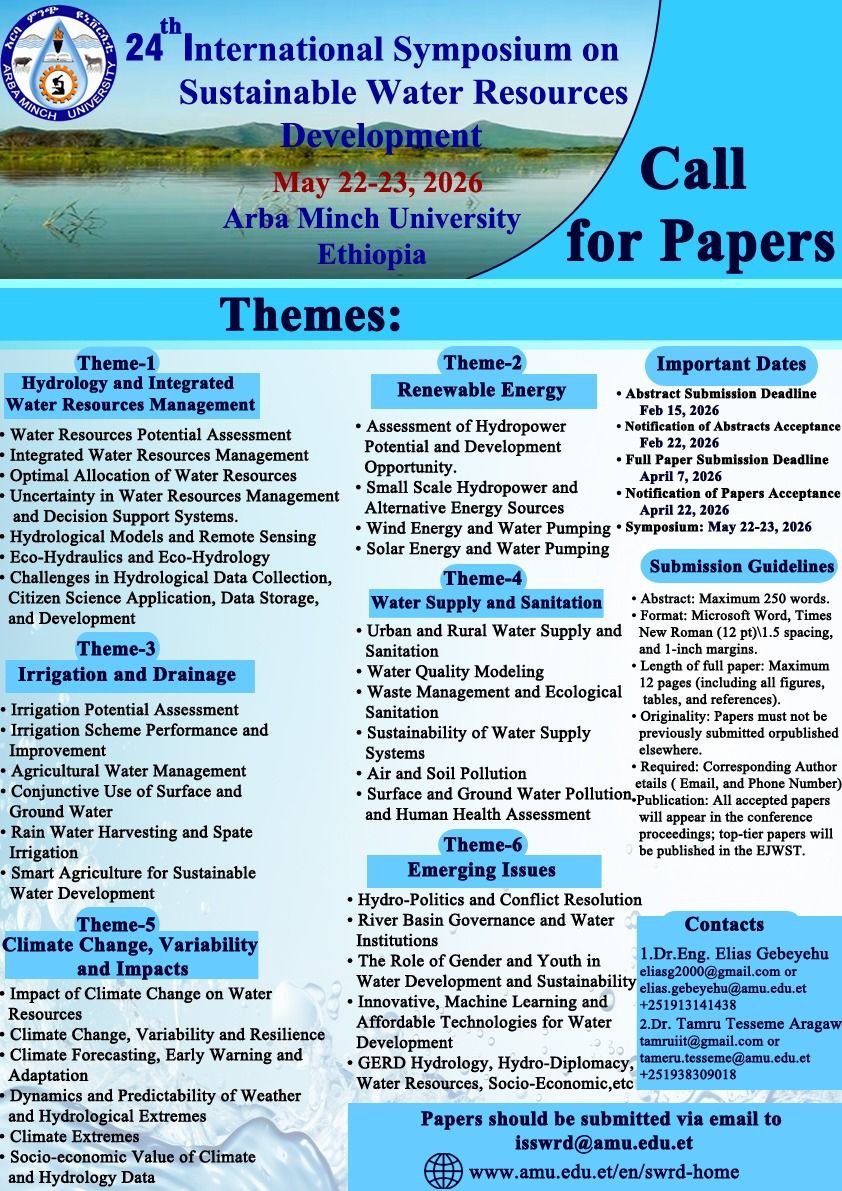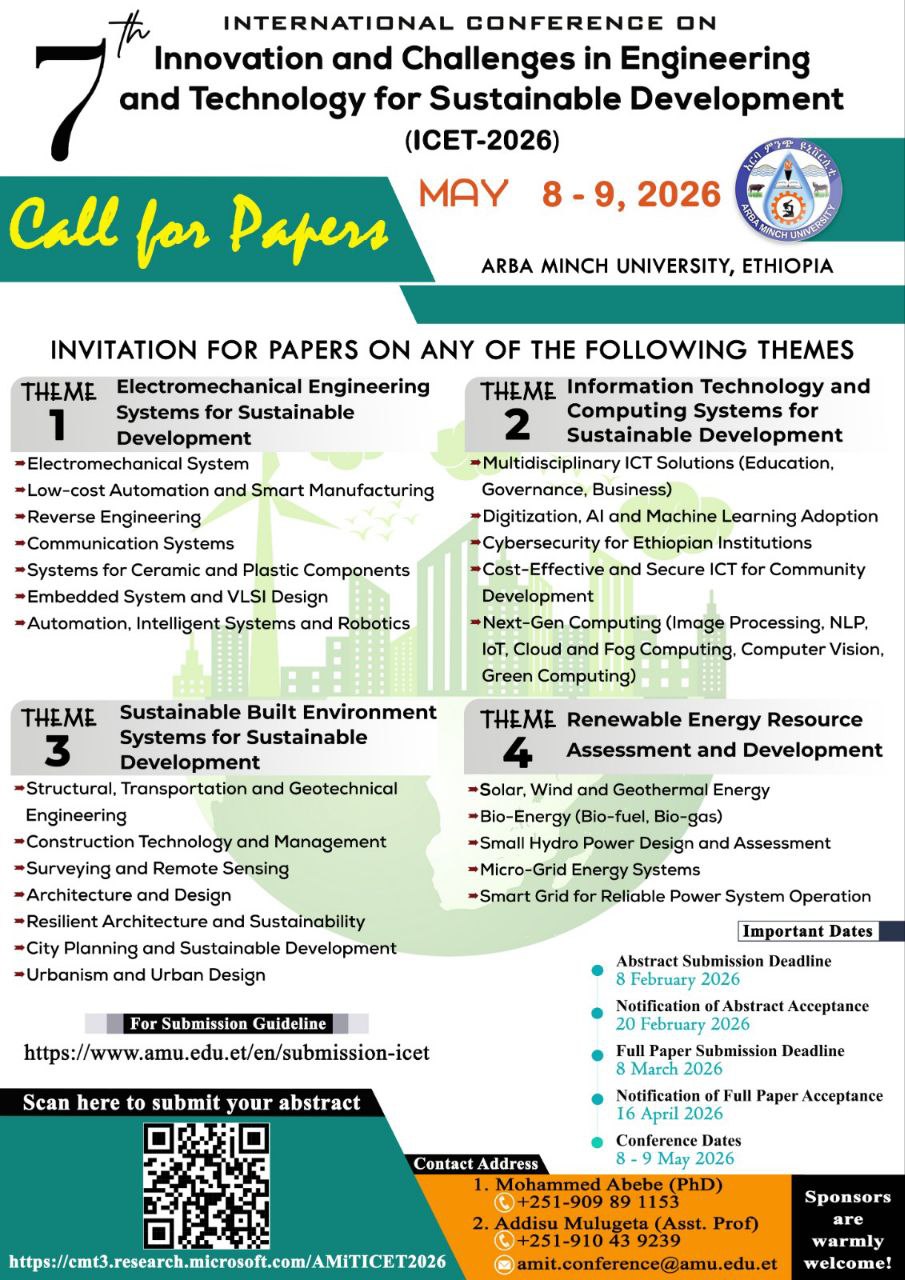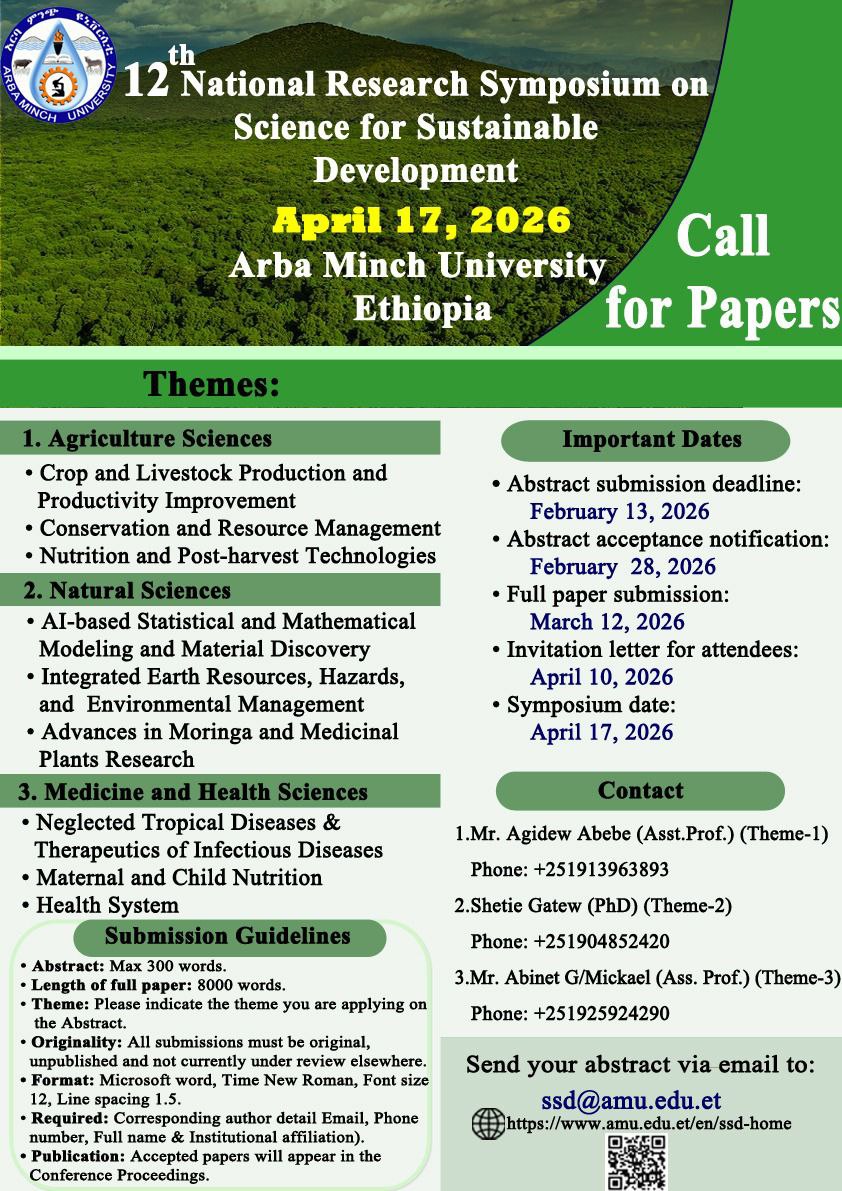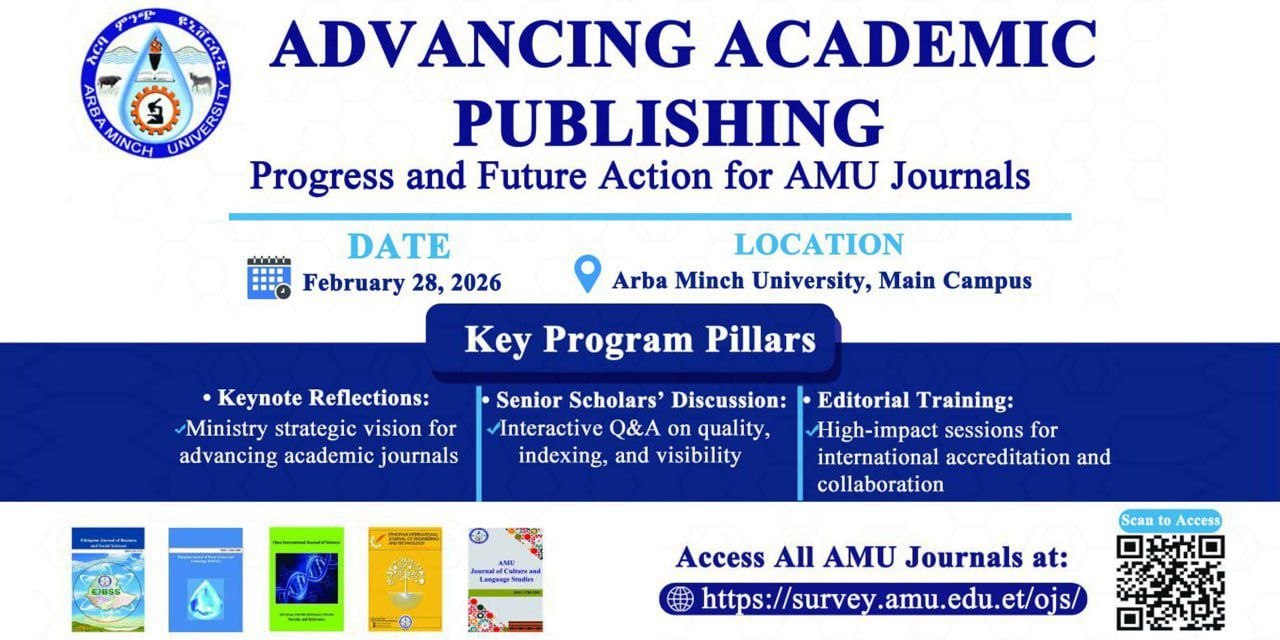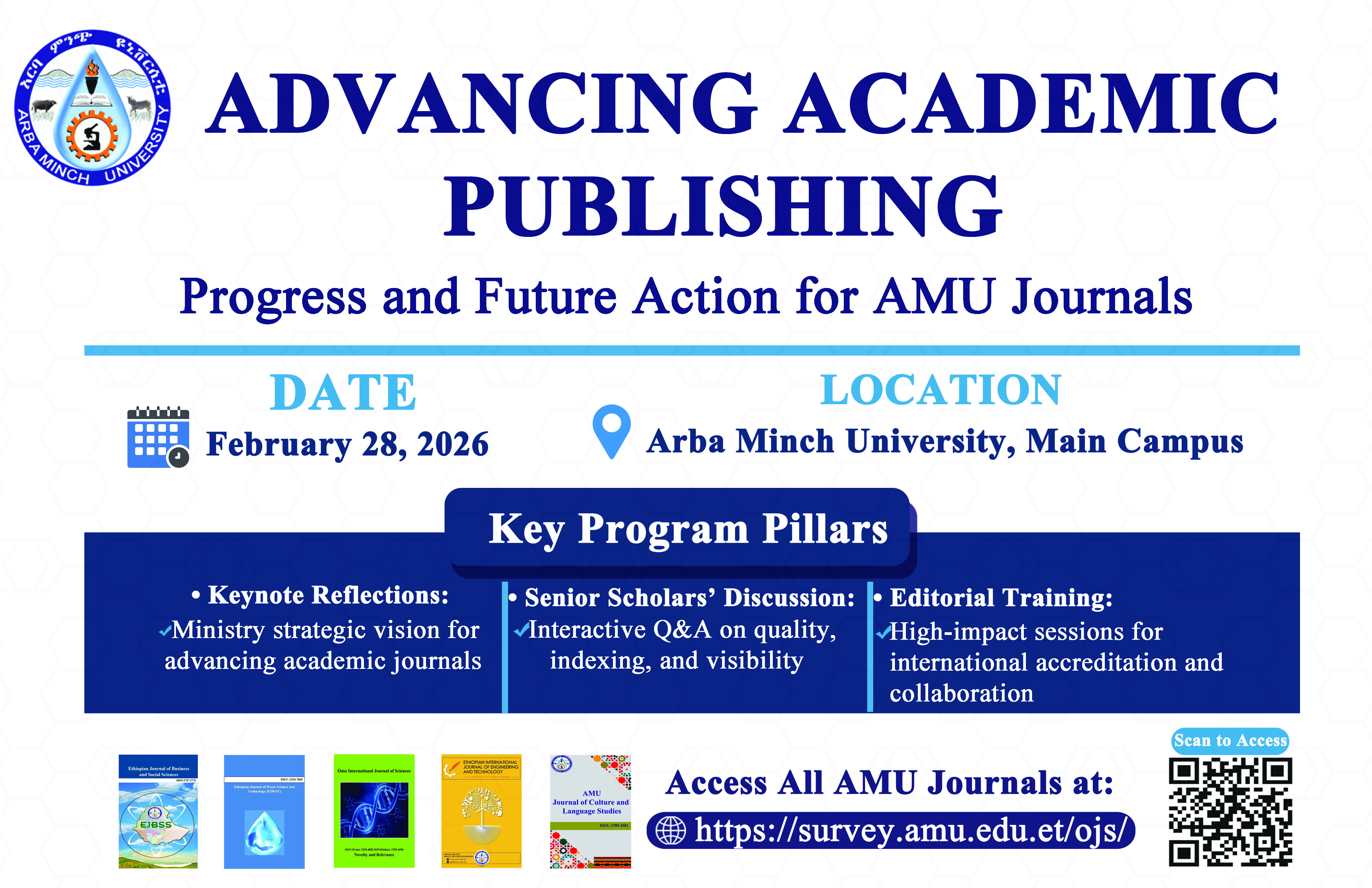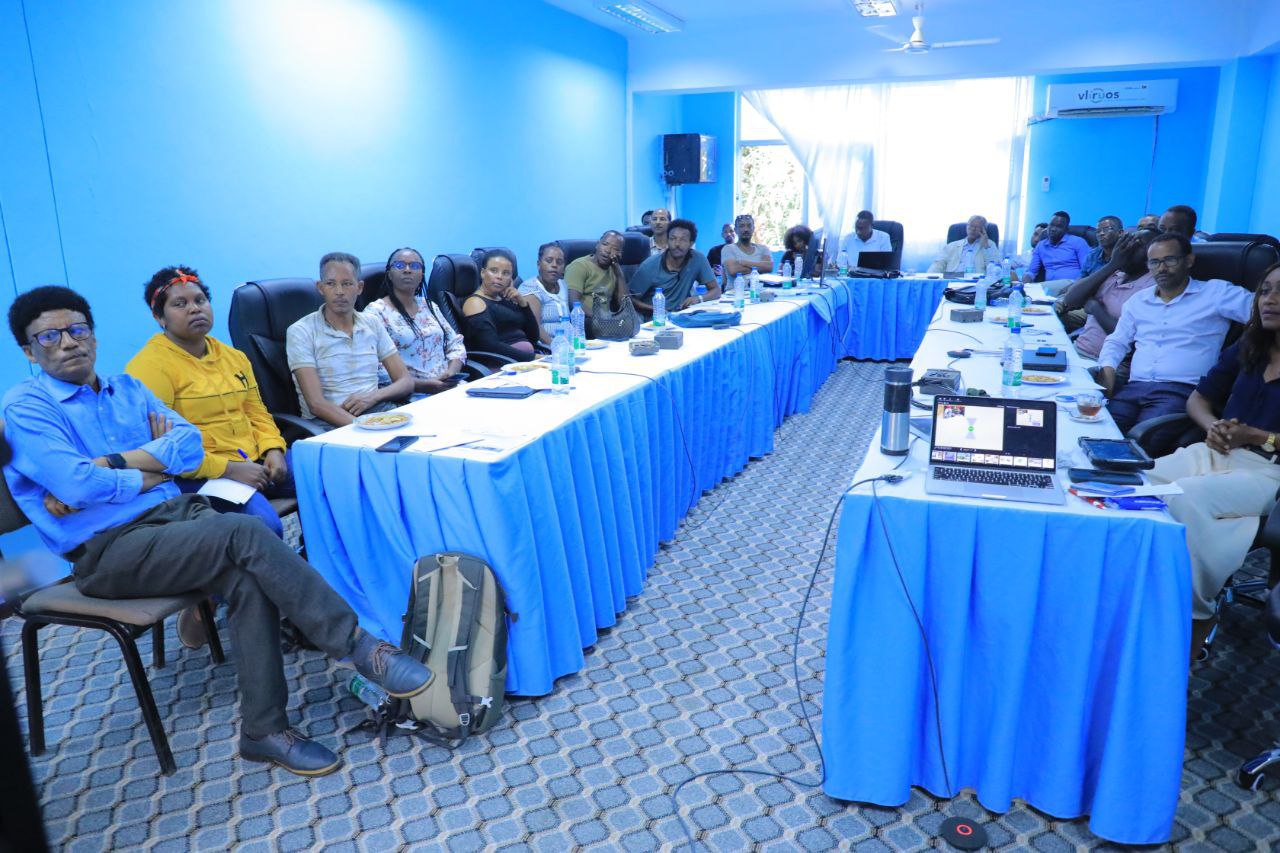Arba Minch University (AMU) along with others hosted a specialized workshop on camera trapping techniques for biodiversity monitoring and community-based conservation on October 28, 2025 at AMU-IUC Video conference Hall. Click here to see more photos.
The workshop was organized within the collaborative frameworks of BioRES project, the biodiversity potential for resilient livelihoods in the Lower Omo, Ethiopia. The AMU, the Global Center on Biodiversity for Climate, and the University of Leeds collaboratively organized the workshop with the goal of equipping the participants with the technical skills in using camera traps to effectively monitor biodiversity and document wildlife by empowering local communities in the face of environmental change. The topics covered include camera trap setup, calibration methods, data management, species identification, and behavioral analysis.
Dr. Tesfaye Habtemariam, Delegate for Vice President for Research and Cooperation and the Director for AMU's Research Affairs, opening the workshop, stated, “Biodiversity monitoring in the Lower Omo region is critical for promoting ecological resilience and supporting the social-ecological systems that sustain local populations.” The initiatives like this are vital for developing sustainable livelihood alternatives in ecotourism, he emphasized. He also expressed his gratitude for the donation of 53 camera traps through BioRES project.
Eshetu Ewnetu, Co-Investigator of the Project, introduced the workshop's objectives and presented a focused case study on the Tama Community Conservation Area in the South Omo. He outlined the project's aim to integrate local ecological knowledge with modern scientific tools to create effective and ethical conservation strategies. He stated that the cameras donated to AMU will have a paramount impact for academic and research purposes.
Similarly, Dr. Tadesse Wolde from the University of Oxford addressed the critical issue of ethics, underscoring the need of obtaining informed consent from local communities and minimizing ecological disturbance during the research whereas Dr. Alastair Ward from the University of Leeds virtually discussed the history, principles, and applications of camera trapping. Prof. J. Jonathan Basco from Calvin University explained about the Geographic Information Systems (GIS), showcasing its power especially when enhanced by AI, for mapping, analysis, and decision-making in East African conservation. And, Hailemariam Atinaf, the Focal Person of AMU-ESRI office at AMU, briefed on hands-on software practice and data analysis using camera trap images, while practical exercises on field deployment were conducted. Barkede Kulumendere also presented a practical exercise and demonstrated on how and in what ways the camera traps were used.
In his closing remarks, Professor Yisehak Kechero, Director for the School of Graduate Studies, highlighted the workshop's broader impact as it provided many ideas and skills for the particpants. The donated cameras are also a great resource for AMU and will significantly contribute to research development, he said, encouraging participants to develop curiosity about ordinary things.
The participants noted that the workshop not only built technical capacity of them but also strengthened the collaborative network essential for addressing biodiversity loss and supporting climate resilience in Ethiopia’s most vulnerable ecosystems.
The BioRES project aims to explore how biodiversity can improve livelihood security, climate change adaptation, and resilience in Ethiopia’s newly established Tama Community Conservation Area (CCA). It focuses on filling major biodiversity data gaps in the region by combining scientific biodiversity monitoring with local ethnobotanical and ethnozoological knowledge. The project involves active participation of local communities, who will be trained in biodiversity assessment and monitoring, leading to the creation of the first biodiversity datasets and management tools for the area. Through these activities, BioRES will strengthen community capacity to manage natural resources sustainably, promote ecotourism as an alternative livelihood option, and support adaptation to climate change. The overall impact will be enhanced food security, improved sustainable livelihoods, and greater social-ecological resilience, allowing communities to maintain their traditional ways of life while benefiting from the conservation of their rich biodiversity.
For more Information Follow us on:-
Website - https://www.amu.edu.et/
Telegram - https://t.me/arbaminch_university
Facebook - https://www.facebook.com/ArbaMinchUniversityccd/
YouTube - https://www.youtube.com/channel/UCOO_nclhMo8M3r74OyPBlVA
Public and International Relations Executive


